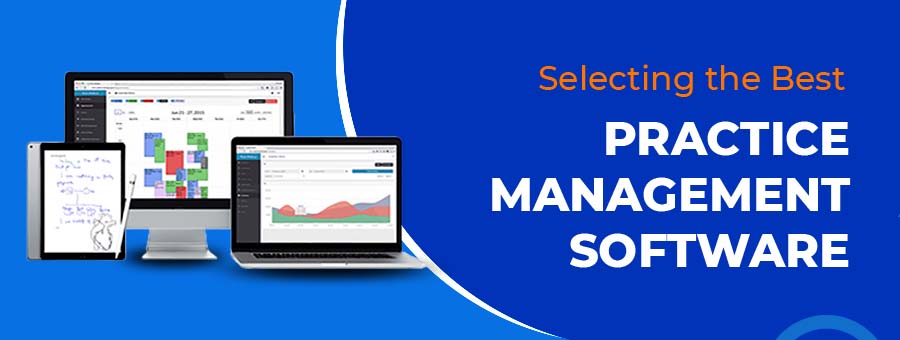Email: info@prgmd.com | Call: +1 (630) 242-6474
Business hours: 9:00 to 5:00 | Monday to Friday
Email: info@prgmd.com | Call: +1 (630) 242-6474
Business hours: 9:00 to 5:00 | Monday to Friday

Table of Contents
ToggleFinding the Practice Management Software that suits your healthcare business is not an easy task. It requires attention and practices need to check various aspects of their business. In addition, it is important to take care of the requirements in detail before finalizing the software for your practice. It can be difficult to decide which Practice Management System suits your requirements even when the practice managers are fully aware of the challenges.
Basically, you are not the only one who is going to decide the best software for your practice. There are other people who should be involved in the decision-making process. When you are finalizing the Practice Management Software (PMS) for your practice, you should take care of the following aspects:
Healthcare providers often make a wrong decision about the software they actually need for your practice. As a result, they are paying hundreds of dollars for a platform not fit for them. Here are a few things you should avoid in the decision making process.
Before finalizing the software for your practice, you should request a demo of the product. As a result, you will come to know exactly what features it has. Do you need these features or not? Is this the product you were looking for? Requesting a demo can answer these questions in detail. However, if you rely on the basic features and do not go into detail, there is a fair chance you make an incorrect purchase decision.
Consulting with someone who is using the product can also help you in the decision-making process. If someone is using the Practice Management software you are looking for, take advice from them. It is better to take advice rather than invest in a system not fit for you.
The more vendors you get in touch with, the more options you have. Relying on one vendor cannot lead to the best decision. In addition, having quotes from multiple vendors give you various options. Consequently, you can select the software that suits your requirements. Lastly, make sure you tell vendors exactly all the features you think are mandatory for your practice.
It is rightly said, “it is not the answer that enlightens, it is the question.” Based on this quote, asking questions from the vendor can address your concerns. Further, ask the vendor if he is able to tell you how many practices are using the system. Can the vendor arrange a meeting with its previous client so you can take the feedback from the user? How long the vendor is in business? Are the prices according to the quality of the system? How great is the customer support service of the vendor? Who will respond to your call for technical support?
Data Security is a major concern nowadays. Also, the technological evolution has made cloud the safest place for your data. The patient information stays secured in the cloud. In addition, there are rare chances of someone getting into your system or making a cyber-attack on the data in the cloud.
Are the processes related to entering data simple? How quickly the data is accessible? What if you want to add more data in the existing software? Does it respond to changes quickly or updating data takes a long time?
An efficient PRACTICE MANAGEMENT SOFTWARE helps healthcare providers to manage the clinical processes easily. Also, it makes your practice effective and the workflow becomes seamless. Other than that, your practice becomes productive as you manage the tasks smoothly. Finally, it maximizes the revenue of your practice and enhances the Overall Business Process.
Share: